Want to be seen here?
Connect your company to the marketplace for free.
Time for a display campaign? Ocast has gathered thousands of solutions in one place so you can get started quickly. Fill in the form and start receiving offers for campaign proposals.
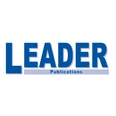
The Jefferson Leader is a local American newspaper founded in 1994 in Festus, Missouri. As part of The Leader Publications, The Jefferson County Leader provides local news for Jefferson County, Missou...

The Missourian Media Company is a family-owned and-operated media company based in Washington, Missouri. The company publishes the Missourian newspaper, which was founded in 1860 and serves Washington...
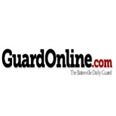
located at 400 Harrison St., Rm 200,Batesville, AR 72501. The Daily Guard is the only source for local news in the Batesville area. No other print or broadcast source offers daily local coverage of ev...

The Saline Courier, Saline County’s local newspaper since 1876, is published Tuesdays through Sundays and covers all of the county with local news, sports, entertainment, weekly coupons, TV listings a...
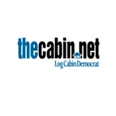
The Log Cabin Democrat is a daily newspaper in Conway, Arkansas, United States, serving Conway and Faulkner County and some surrounding areas. It was founded in July 1879 as The Log Cabin. Its publish...

The El Dorado News-Times traces its roots back to the El Dorado Times, which first published in 1889. In 1928, C.E. Palmer purchased what had become the News-Times Publishing Co. Mr. Palmer’s son-in-l...
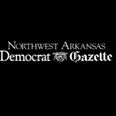
Northwest Arkansas Democrat Gazette (ISSN 1060-4332) is a daily newspaper in Fayetteville, Arkansas owned by Northwest Arkansas Newspapers and has circulation of 17,807 copies.The Northwest Arkansas D...
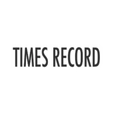
The Southwest Times Record is a daily newspaper published in Fort Smith, Ark. The paper provides news coverage for 10 counties across western Arkansas and eastern Oklahoma. The Times Record is a subsi...

The Harrison Daily Times has been in continuous publication since 1876. We publish Tuesday through Saturday mornings. Our paid circulation is 7,000 on the weekends and 6,300 on the weekdays.The Harris...

Known often and/or historically as Sentinel-Record, or S-R, it emerged as the survivor as a daily newspaper out of multiple newspapers competing in Hot Springs in the late 1800s, which eventually merg...

The Jonesboro Sun is Northeast Arkansas' regional newspaper serving readers in seven counties of Arkansas. The Sun is owned by Paxton Media Group of Paducah, Kentucky.We publish Tuesday through Saturd...
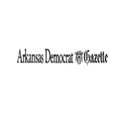
About us. Arkansas' Largest Newspaper, the Arkansas Democrat-Gazette covers the state with its daily newspaper and website, ArkansasOnline.com. The Democrat-Gazette is owned by WEHCO Media which opera...
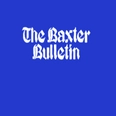
The Baxter Bulletin is the daily newspaper serving Mountain Home, Arkansas and Baxter County, Arkansas, and surrounding areas. In 1976, the paper was acquired by Multimedia; Gannett acquired Multimedi...

On Jan. 28, 1875, "Your Messenger for the Arkansas River Valley" was born. The newspaper that is known today as The Courier began with B.F. Jobe and James E. Battenfield serving as the paper's inaugur...
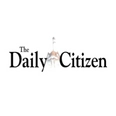
The Daily Citizen is a newspaper which is published every day except Mondays and Saturdays in Searcy, Arkansas. It is owned by Paxton Media Group. The newspaper's circulation is 6,000. The newspaper w...
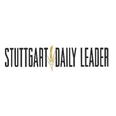
The Stuttgart Daily Leader is a local news website covering Stuttgart, in southeast Arkansas. The website's roots are in the community's print newspaper founded in 1885.We are locally-owned and operat...
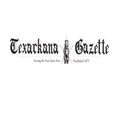
The Texarkana Gazette is a daily newspaper founded in 1875 and currently owned by WEHCO Media, Inc. It serves a nine-county area surrounding Texarkana.Texarkana Newspapers, Inc., doing business as Tex...
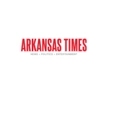
Founded in 1974, the Arkansas Times is a lively, opinionated source for news, politics & culture in Arkansas. Our monthly magazine is free at over 500 locations in Central Arkansas....

The Omaha World-Herald is a daily newspaper in the midwestern United States, the primary newspaper of the Omaha-Council Bluffs metropolitan area. It was locally owned from its founding in 1885 until 2...

As part of the award-winning Modern Luxury Media network, Modern Luxury Dallas delivers cutting-edge fashion spreads, international travel features, revealing celebrity profiles, and the latest local ...
Display advertising, often referred to as banner advertising, involves visual ads placed on various websites, in contrast to text-based search ads that appear in search results on platforms like Google.
While search ads are focused on direct response, display ads aim at building brand awareness through engaging visual content like images or animations. Display advertising also enables retargeting, where ads are redirected to users who have previously visited your website, helping to keep the brand fresh in mind.
With opportunities to measure campaign performance and customize design and target audience, display advertising offers an attractive strategy for brands looking to enhance their online presence and effectively engage their target audiences.
The most effective formats and sizes for display ads vary depending on the platform and target audience, but here are some popular options:
Leaderboard (728x90 px): Positioned at the top of the page, this ad size captures visitors' attention right away.
Medium Rectangle (300x250 px): This size is flexible and can be placed in sidebars or embedded within content.
Large Rectangle (336x280 px): A larger variant of the Medium Rectangle that offers more visible space.
Wide Skyscraper (160x600 px): Often used in sidebars, offering a long, vertical ad space.
Mobile Leaderboard (320x50 px): Optimized for mobile devices and often placed at the top or bottom of the screen.
Consider adhering to industry standards and adapting ad format and size to the specific platform and your target audience. However, the emphasis should be on having well-thought-out content that engages and is relevant to your target audience with clear "Call to Actions" (CTA) to encourage clicks and conversions.
Measuring the effectiveness of your display advertising campaigns is crucial for evaluating the results of your campaign and for fine-tuning future marketing strategies. A first step could be to look over the Click-Through Rate (CTR), which represents the number of clicks your ad receives per view, providing an indication of the ad's engagement level. It is also important to track the conversion rate, which shows how many clicks are converted into desired actions such as sales or leads. Cost Per Conversion is another key indicator that helps you understand the cost-effectiveness of your campaign.
It may also be good to look at the impression rate, that is, how many times the ad has actually reached out and been displayed for brand-building purposes.
One of the major advantages of this type of advertising is its ability for audience targeting, where ads can be directed based on demographics, behavior, and retargeting, enabling a more personalized advertising experience. Moreover, with the use of various analytical tools, it becomes easy to track and measure the campaign's effectiveness by observing data on clicks, conversions, and views, which provides valuable insights.
However, display advertising also has its downsides. Ad blocking is one of the major challenges, where users can choose to block display ads, which in turn reduces the reach and effectiveness of your campaign. Ad fatigue is another downside, where ads that are shown too often can become irritating for the users, leading to decreased engagement and negative brand associations. Despite the ability for audience targeting, audience dilution can be a challenge if precise targeting is not used, which potentially leads to wasted marketing expenses. Additionally, the cost of display advertising can become significant, especially if the campaign is not well optimized to achieve desired results.
The cost of display advertising can vary based on several factors such as website, ad format, and target audience. Besides that, there are different pricing structures one can base on to adjust the cost according to the goal at hand. Below we list different pricing options for display advertising.
CPM (Cost Per Mille or Cost Per Thousand Impressions):
The price for 1000 views of your ad.
Often used for campaigns aimed at increasing brand awareness.
CPC (Cost Per Click):
The price you pay for each click your ad receives.
Used when the goal is to drive traffic to a website or increase interaction.
CPA (Cost Per Acquisition or Cost Per Action):
The price for each specific action or execution, such as a purchase or lead generation, that arises via your ad.
Used when the goal is conversions rather than just views or clicks.
CPL (Cost Per Lead):
The price for each lead generated through your ad.
Used in B2B marketing or for products/services with longer sales cycles.
CPV (Cost Per View):
The price for each viewing of a video ad.
Often used for video-based advertising campaigns.
Each pricing structure suits different goals and campaign types, and choosing the right pricing structure can help maximize the ROI for your display campaign.
Connect your company to the marketplace for free.
No commitments.